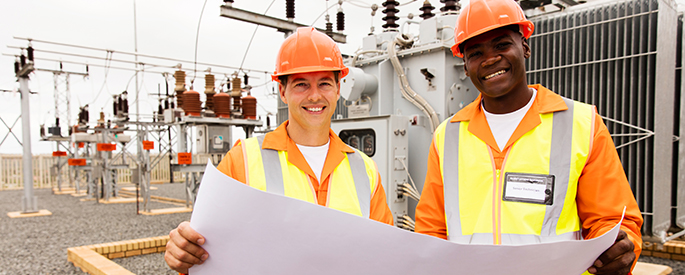
Energy Generation, Transmission, and Distribution
As the electric power industry transforms with increasing technological advancements, managed by an aging skilled workforce, the need to participate in developing a diverse and qualified talent pool is critical. The energy sector nationally, and in Wisconsin, enjoys strong employer support through membership in the national Center for Energy Workforce Development (CEWD). The CEWD “focuses on closing the skill gaps in mission critical jobs as the industry faces changes in technology and leads the way to a cleaner energy future. Over the past 10 years, CEWD has worked to create a strong foundation of partnership between the energy industry, education, and workforce development to implement proven and scalable workforce solutions that save time, conserve resources, and reduce costs” (CEWD 2020; Source accessed 8/7/2020).
Wisconsin’s Energy Workforce Consortium (WEWC) chapter was instrumental in developing this particular career pathway for secondary students. In early 2020, the WEWC education subcommittee prioritized developing a career pathway as a means to reach out and promote career development in high school for the high skill energy industry sector.
Furthermore, national resources from the CEWD include sets of curriculum and lessons for schools to use, including entry level certification upon completion. The following skills and resources were identified and used to develop the state pathway map outline and are provided here with endorsement by the WEWC for incorporation into STEM-Energy career pathway courses and learning.
Pathways Wisconsin Resources
Other Energy Career Resources
- Get Into Energy
- K12 Energy Education Program (KEEP) interdisciplinary curriculum
- K12 energy curricular resources
- The Energy Career Academy Framework
- The Energy Industry Fundamentals Certificate and Curriculum Modules : The course is 130 hours (instructional time). Colleges that are offering the program for credit should work within their standard systems for assigning credit hours. High schools are encouraged to partner with postsecondary institutions to provide dual credit.
- Wisconsin SkillsUSA
- First Robotics
- Clean Energy Careers Videos